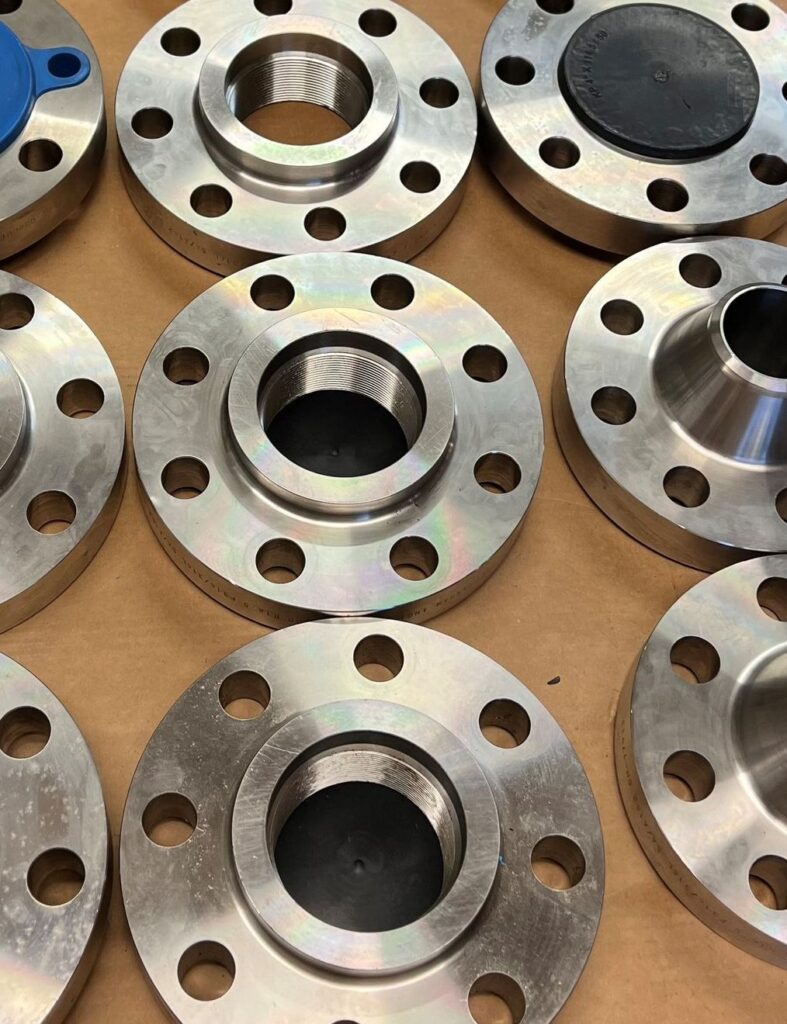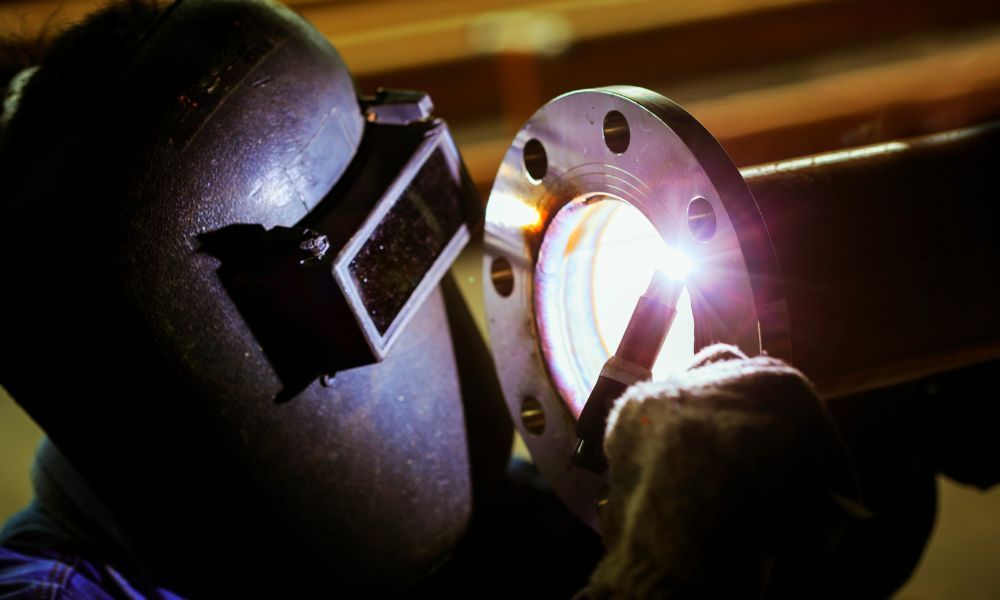Flanges For The Oil & Gas Industry
Flanges For The Wastewater & Water Industry
Flanges For The Agriculture & Irrigation Industry
Flanges For The Chemical Processing Industry
Flanges For The Manufacturing & Processing Industry
Flanges For The Oil & Gas Industry
Flanges For Oil and Gas Pipe Applications
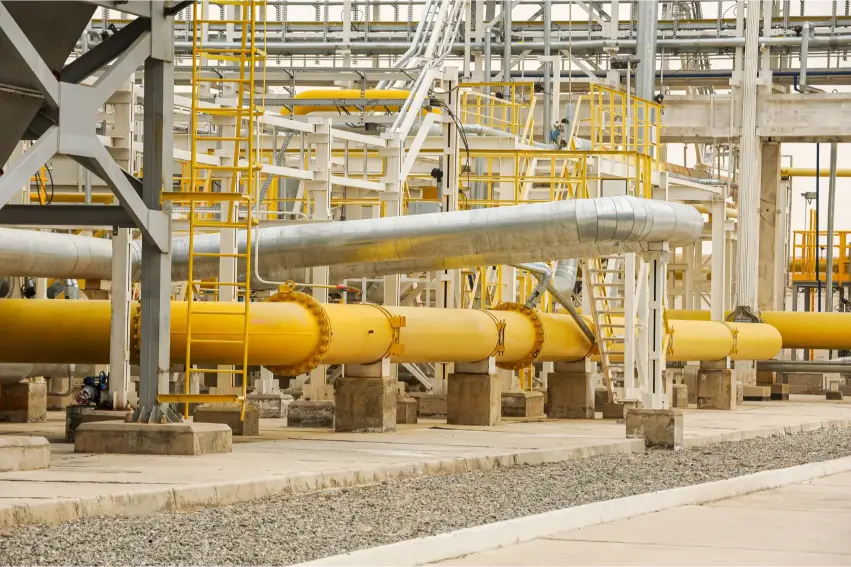
Flanges in oil and gas pipelines are critical for securely connecting sections of pipe, with pressure ratings that ensure safe operation under varying conditions, typically ranging from 150 to 2500 psi to accommodate different system requirements. The flange material selection for oil and gas pipes is crucial to ensure durability and corrosion resistance, with common choices including carbon steel, stainless steel, and alloy materials, depending on factors like temperature, pressure, and the chemical composition of transported fluids. Meeting the industry standards, flanges for the oil and gas industry typically incorporating raised faces, flat faces, or ring-type joints to ensure a leak-proof seal under high-pressure and high-temperature conditions.
Flanges For The Wastewater & Water Industry
Flanges for Wastewater & Water Industry Applications
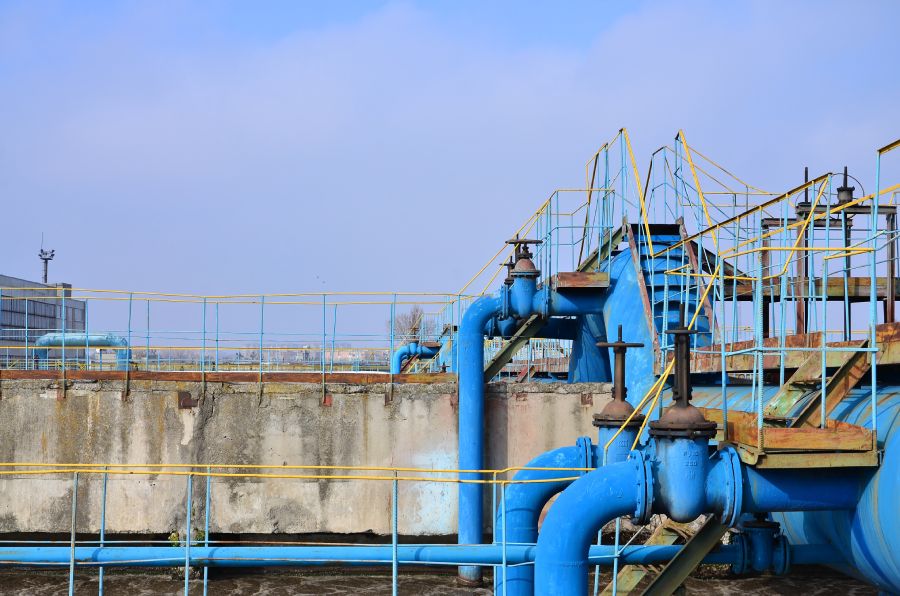
In the wastewater and water industry, flange pressure ratings typically range from 150 to 300 psi, ensuring reliable connections and leak prevention in systems operating under moderate pressure conditions. The material selection for flanges in the wastewater and water industry often includes ductile iron, stainless steel, and PVC, chosen for their corrosion resistance and durability in handling both potable water and corrosive wastewater environments. Flange designs for the wastewater and water industry focuses on reliability and ease of maintenance, often featuring flat-faced or raised-faced designs to ensure a secure, leak-proof connection in low to moderate pressure systems.
Flanges For The Agriculture & Irrigation Industry
Flanges For Agriculture & Irrigation Applications
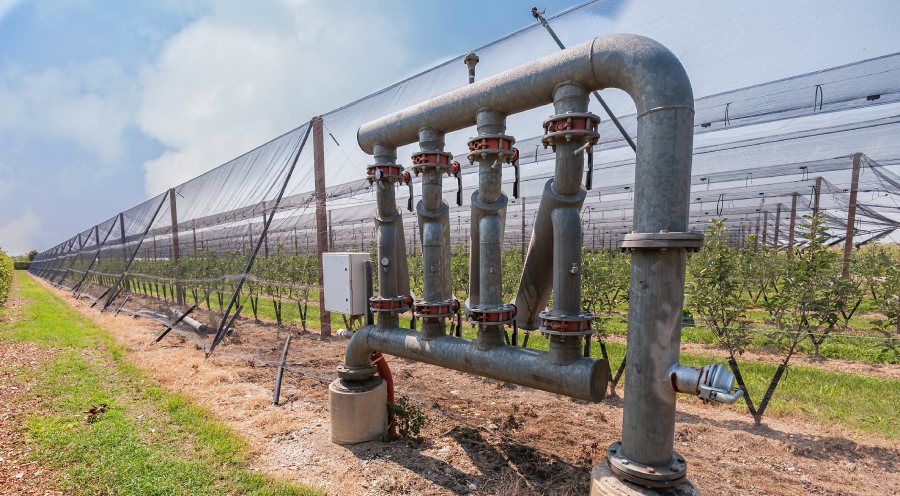
Pressure ratings of flanges for agricultural and irrigation pipes typically range from 150 to 300 psi, ensuring safe and efficient operation while accommodating the dynamic pressures experienced in irrigation systems and agricultural applications. Material selection for flanges on agricultural and irrigation pipes often includes options like PVC, galvanized steel, and polyethylene, chosen for their durability, resistance to corrosion, and suitability for handling water and various agricultural chemicals. The design of flanges for agricultural and irrigation pipes emphasizes ease of installation and maintenance, typically incorporating flat or raised faces to create reliable, leak-proof connections that can withstand the physical stresses of varying soil conditions and water flow.
Flanges For The Chemical Processing Industry
Flanges For Chemical Processing Industry Applications
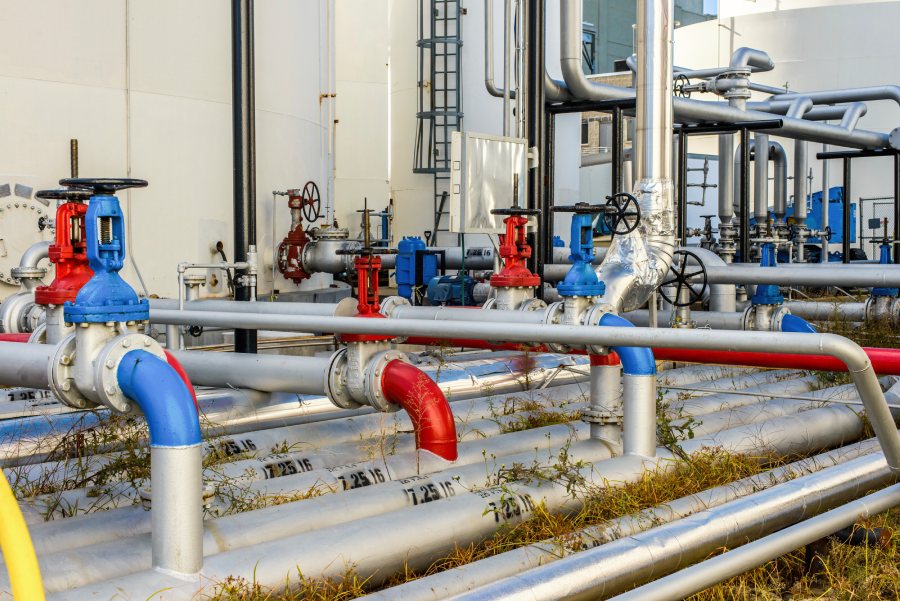
The pressure ratings for flanges in the chemical processing industry typically range from 150 to 3000 psi, designed to safely accommodate the high pressures and corrosive environments associated with the transport and processing of various chemicals. Material selection for flanges in the chemical processing industry is critical and often involves corrosion-resistant alloys such as stainless steel, Hastelloy, or duplex stainless steel, chosen to withstand aggressive chemicals and high-temperature environments. The design of flanges for the chemical processing industry prioritizes safety and performance, often featuring specialized sealing surfaces and gasket materials that can handle aggressive chemicals and high-pressure applications, ensuring leak-proof connections in critical systems.
Flanges For The Manufacturing & Processing Industry
Flanges For Manufacturing & Processing Applications
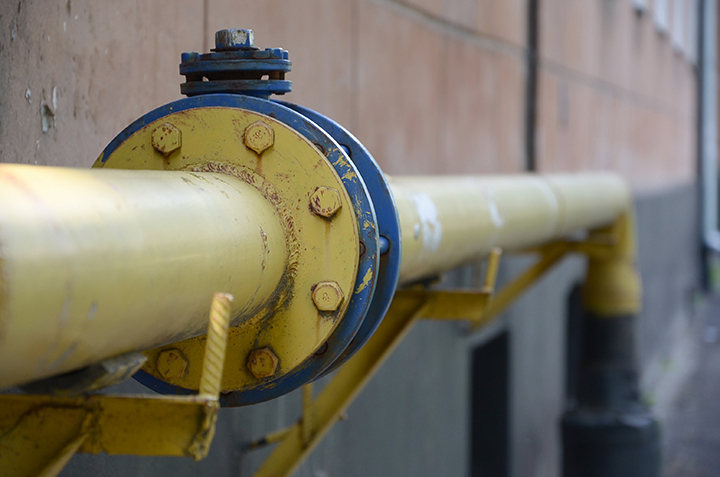
Flanges in the manufacturing and processing industry generally have pressure ratings that range from 150 to 2500 psi, ensuring secure connections that can handle the diverse pressures encountered in various production processes. The material selection for the manufacturing and processing industry often involves options such as carbon steel, stainless steel, and alloy materials, chosen for their strength, durability, and resistance to corrosion in demanding operational environments. Flange design for the manufacturing and processing industry typically incorporates features such as raised faces, bolt holes, and groove patterns to ensure a tight, secure fit while facilitating ease of assembly and maintenance in high-pressure applications.

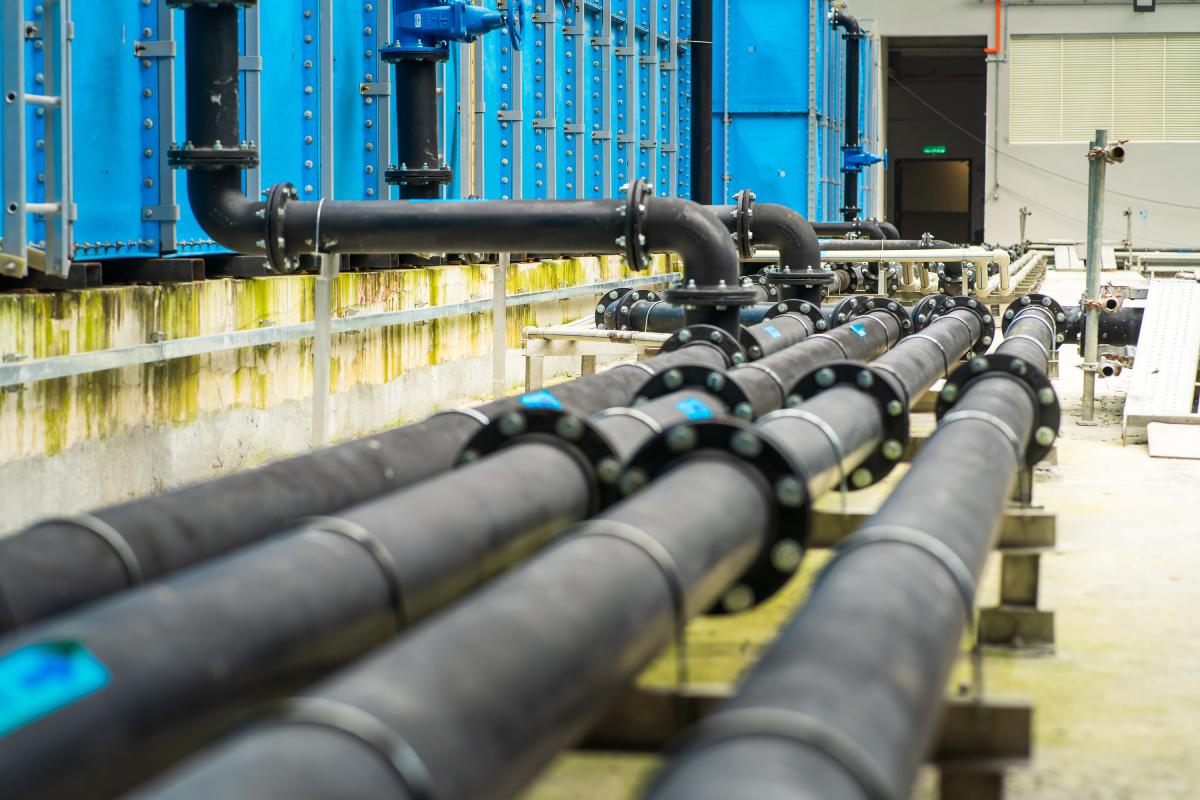 Coastal Resource Group supplies top-quality industrial flanges designed for critical applications in industries such as oil & gas, chemical processing, and water treatment. Their flanges are engineered for precise fit and durability, ensuring dependable connections in even the most challenging environments. Built from premium materials, these industrial flanges are highly resistant to corrosion and capable of withstanding extreme pressures and temperatures. Coastal Resource Group’s commitment to quality ensures that their flanges deliver superior performance and reliability, making them an essential component in a variety of industrial systems.
Coastal Resource Group supplies top-quality industrial flanges designed for critical applications in industries such as oil & gas, chemical processing, and water treatment. Their flanges are engineered for precise fit and durability, ensuring dependable connections in even the most challenging environments. Built from premium materials, these industrial flanges are highly resistant to corrosion and capable of withstanding extreme pressures and temperatures. Coastal Resource Group’s commitment to quality ensures that their flanges deliver superior performance and reliability, making them an essential component in a variety of industrial systems. Flanges in oil and gas pipelines are critical for securely connecting sections of pipe, with pressure ratings that ensure safe operation under varying conditions, typically ranging from 150 to 2500 psi to accommodate different system requirements. The flange material selection for oil and gas pipes is crucial to ensure durability and corrosion resistance, with common choices including carbon steel, stainless steel, and alloy materials, depending on factors like temperature, pressure, and the chemical composition of transported fluids. Meeting the industry standards, flanges for the oil and gas industry typically incorporating raised faces, flat faces, or ring-type joints to ensure a leak-proof seal under high-pressure and high-temperature conditions.
Flanges in oil and gas pipelines are critical for securely connecting sections of pipe, with pressure ratings that ensure safe operation under varying conditions, typically ranging from 150 to 2500 psi to accommodate different system requirements. The flange material selection for oil and gas pipes is crucial to ensure durability and corrosion resistance, with common choices including carbon steel, stainless steel, and alloy materials, depending on factors like temperature, pressure, and the chemical composition of transported fluids. Meeting the industry standards, flanges for the oil and gas industry typically incorporating raised faces, flat faces, or ring-type joints to ensure a leak-proof seal under high-pressure and high-temperature conditions.
 In the wastewater and water industry, flange pressure ratings typically range from 150 to 300 psi, ensuring reliable connections and leak prevention in systems operating under moderate pressure conditions. The material selection for flanges in the wastewater and water industry often includes ductile iron, stainless steel, and PVC, chosen for their corrosion resistance and durability in handling both potable water and corrosive wastewater environments. Flange designs for the wastewater and water industry focuses on reliability and ease of maintenance, often featuring flat-faced or raised-faced designs to ensure a secure, leak-proof connection in low to moderate pressure systems.
In the wastewater and water industry, flange pressure ratings typically range from 150 to 300 psi, ensuring reliable connections and leak prevention in systems operating under moderate pressure conditions. The material selection for flanges in the wastewater and water industry often includes ductile iron, stainless steel, and PVC, chosen for their corrosion resistance and durability in handling both potable water and corrosive wastewater environments. Flange designs for the wastewater and water industry focuses on reliability and ease of maintenance, often featuring flat-faced or raised-faced designs to ensure a secure, leak-proof connection in low to moderate pressure systems.
 Pressure ratings of flanges for agricultural and irrigation pipes typically range from 150 to 300 psi, ensuring safe and efficient operation while accommodating the dynamic pressures experienced in irrigation systems and agricultural applications. Material selection for flanges on agricultural and irrigation pipes often includes options like PVC, galvanized steel, and polyethylene, chosen for their durability, resistance to corrosion, and suitability for handling water and various agricultural chemicals. The design of flanges for agricultural and irrigation pipes emphasizes ease of installation and maintenance, typically incorporating flat or raised faces to create reliable, leak-proof connections that can withstand the physical stresses of varying soil conditions and water flow.
Pressure ratings of flanges for agricultural and irrigation pipes typically range from 150 to 300 psi, ensuring safe and efficient operation while accommodating the dynamic pressures experienced in irrigation systems and agricultural applications. Material selection for flanges on agricultural and irrigation pipes often includes options like PVC, galvanized steel, and polyethylene, chosen for their durability, resistance to corrosion, and suitability for handling water and various agricultural chemicals. The design of flanges for agricultural and irrigation pipes emphasizes ease of installation and maintenance, typically incorporating flat or raised faces to create reliable, leak-proof connections that can withstand the physical stresses of varying soil conditions and water flow.
 The pressure ratings for flanges in the chemical processing industry typically range from 150 to 3000 psi, designed to safely accommodate the high pressures and corrosive environments associated with the transport and processing of various chemicals. Material selection for flanges in the chemical processing industry is critical and often involves corrosion-resistant alloys such as stainless steel, Hastelloy, or duplex stainless steel, chosen to withstand aggressive chemicals and high-temperature environments. The design of flanges for the chemical processing industry prioritizes safety and performance, often featuring specialized sealing surfaces and gasket materials that can handle aggressive chemicals and high-pressure applications, ensuring leak-proof connections in critical systems.
The pressure ratings for flanges in the chemical processing industry typically range from 150 to 3000 psi, designed to safely accommodate the high pressures and corrosive environments associated with the transport and processing of various chemicals. Material selection for flanges in the chemical processing industry is critical and often involves corrosion-resistant alloys such as stainless steel, Hastelloy, or duplex stainless steel, chosen to withstand aggressive chemicals and high-temperature environments. The design of flanges for the chemical processing industry prioritizes safety and performance, often featuring specialized sealing surfaces and gasket materials that can handle aggressive chemicals and high-pressure applications, ensuring leak-proof connections in critical systems.
 Flanges in the manufacturing and processing industry generally have pressure ratings that range from 150 to 2500 psi, ensuring secure connections that can handle the diverse pressures encountered in various production processes. The material selection for the manufacturing and processing industry often involves options such as carbon steel, stainless steel, and alloy materials, chosen for their strength, durability, and resistance to corrosion in demanding operational environments. Flange design for the manufacturing and processing industry typically incorporates features such as raised faces, bolt holes, and groove patterns to ensure a tight, secure fit while facilitating ease of assembly and maintenance in high-pressure applications.
Flanges in the manufacturing and processing industry generally have pressure ratings that range from 150 to 2500 psi, ensuring secure connections that can handle the diverse pressures encountered in various production processes. The material selection for the manufacturing and processing industry often involves options such as carbon steel, stainless steel, and alloy materials, chosen for their strength, durability, and resistance to corrosion in demanding operational environments. Flange design for the manufacturing and processing industry typically incorporates features such as raised faces, bolt holes, and groove patterns to ensure a tight, secure fit while facilitating ease of assembly and maintenance in high-pressure applications.
